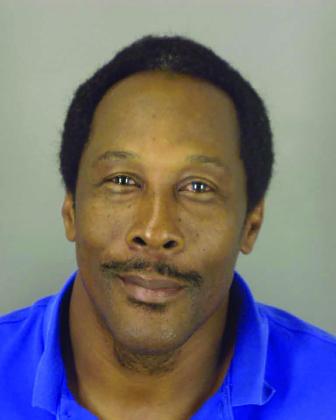Feb. 9, nearly eight years after former Beaumont Independent School District (BISD) contract electrician Calvin Walker was indicted in July 2014 for crimes alleging he defrauded the district of more than $1 million through deceptive documentation, phony invoices and padded work orders, an appeals court has affirmed the indictment, jury trial and restitution order handed down to the felon convicted of securing execution of a document by deception in January 2020.
As noted in the Ninth Court of Appeals decision, Walker and his legal team, led by Houston attorney Dick Deguerin, have kept the charges against the defendant in limbo for years by utilizing the county, district and state appeals process. A brief delineation of the process was even made part of the Feb. 9 opinion.
“We note that in 2014, Calvin Walker filed applications for pretrial writs of habeas corpus seeking to dismiss his cases on double jeopardy and due process grounds.
“After concluding the state had not forfeited the dual sovereignty doctrine, the trial court found that Walker’s double jeopardy claim lacked merit and denied Walker’s applications. The trial court also determined that based on Walker’s petitions and attached documents, it could render a proper ruling without further development of Walker’s claim.
“Walker appealed the ruling denying his pretrial applications. This court affirmed the trial court’s rulings in those appeals, holding that Walker was not entitled to relief,” the court record recites. But, that was just covering the first set of appeals, and fails to even touch on the arguments sent to the U.S. Supreme Court.
“In 2017, Walker filed more applications seeking habeas relief. He asked the trial court to dismiss the indictments on double jeopardy grounds, and he challenged the constitutionality of the separate sovereign exception. The trial court also denied those applications, finding Walker’s claims without merit. Walker appealed, and this court affirmed the trial court’s rulings in the opinion the court issued in 2018.”
At the heart of the alleged criminal activity are checks Walker received from BISD for work performed prior to May 2009. According to prosecutors, Walker submitted falsified invoices and fraudulently applied check receipts to collect roughly $1,172,656.01 from the taxpayers of BISD that he was not entitled to. Walker’s defense promoted the idea that Walker was free to charge whatever he wanted for BISD jobs that included hurricane remediation at BISD campuses, and the falsified documents were unnecessary fluff.
A jury elected to believe Walker had indeed used deception to secure the overpayment, and, in October 2019, the trial court pronounced judgment, suspended Walker’s punishment of 10 years of confinement, placed Walker on probation for a period of 10 years, and indicated the court would conduct another hearing and impose any remaining conditions relevant to Walker’s probation after presiding Judge John Stevens received Walker’s post-sentence report.
Nov. 5, 2019, Walker filed his Sentencing Memoranda, in which he argued the trial court should not order restitution.
Walker, effectively able to stall the proceedings yet again, was back in court to challenge the next phase of the trial through the end of 2019 – but, unlike the years that pass between filings when the defense takes arguments to the appeals court, the arguments were quickly passed through the Jefferson County trial court.
“On January 8, 2020, the trial court conducted a hearing to decide what amount to award in restitution,” the appeals court opinion released Feb. 9 detailed through the pen of Chief Justice W. Scott Goleman. “Following the January 2020 hearing, the trial court orally pronounced and ordered Walker to pay BISD $1,172,656.01 in restitution and entered an Order of Restitution and a Judgment that same day to include the amount of restitution pronounced in open court.”
Another appeal was then made by the defense – Walker wanted a new trial. Judge Stevens denied the request, which was then brought to the Court of Appeals for further consideration. It took two years, but the Feb. 9 opinion upheld the trial court’s determination.
Summing up the appeals court’s opinion of Walker’s objections: Appeal No. 1 – overruled; Appeal No. 2 – overruled; Appeal No. 3 – overruled; Appeal No. 4 – overruled; Appeal No. 5 – overruled; Appeal No. 6 – overruled.
“Having overruled Walker’s issues, we affirm the trial court’s judgment,” the tribunal of the appeals court agreed.
The appeal court upholding the trial court’s verdict doesn’t necessarily put an end to this chapter, as Walker’s team could file a motion for reconsideration or apply for discretional review by the Court of Criminal Appeals.
“That will take some time,” Jefferson County First Assistant District Attorney Pat Knauth said, addressing whether or not the State V. Walker case is officially closed. Knauth anticipates some form of appeal, and his office stands ready to fight for justice for the stakeholders defrauded by Walker’s criminality. “After learning if the court grants further consideration, we will do what we need to do.
“When that timeline has run, then a mandate will issue. Once that occurs, Walker’s sentence will be issued.”
Knauth said the state will never be able to recoup the man hours and funding that has been used to prosecute this case for almost a decade, but the seasoned prosecutor is satisfied with the $1 million-plus in restitution, $10,000 fine and six months upfront jail time Walker will be required to serve – either all at once, or on the weekends.
“We’re looking forward to him starting his sentence sometime soon,” Knauth said. “He’s been waiting for justice for a long time, and this is long overdue.”


